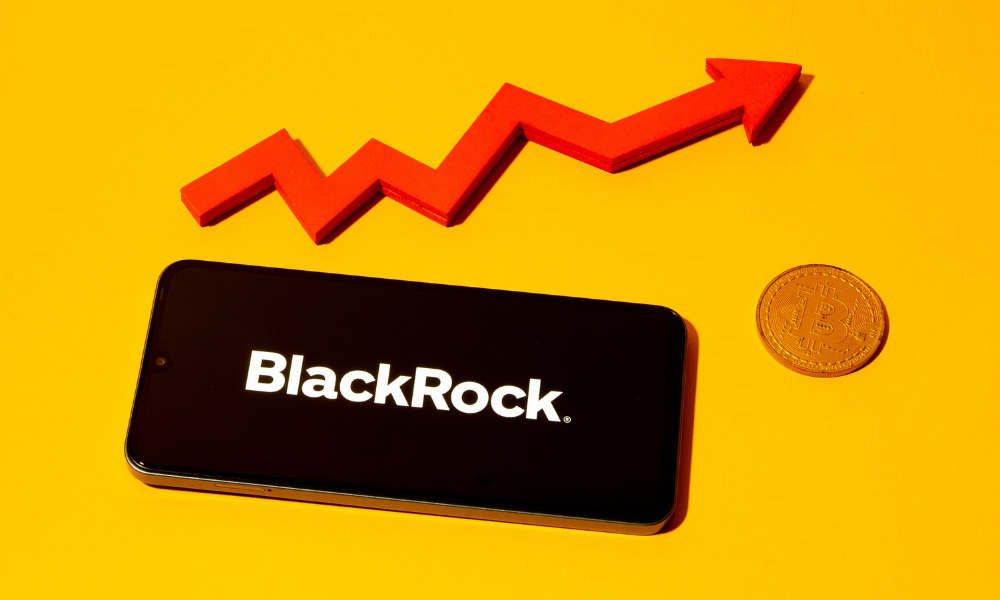After EU (and B.C) crack down on Apple, CIO explains why he doesn’t see big risks from regulators in US technology stocks

Apple was recently hit with a massive fine by the European Union. The US tech giant was handed a $2 billion bill for playing favourites with its own music streaming service, preventing its competitors from telling users how they could pay for less expensive subscriptions outside of iPhone apps. Though the bill was far less, Apple was also subsequently forced to pay a $14.4 million settlement by the British Columbia Supreme Court. These fines and rulings raise a question for investors as they look at big tech companies with huge market share like Apple: are these companies at risk of being trust-busted?
Elliot Johnson doesn’t think so. The Chief Investment Officer at Evolve ETFs explained that big fines and heavy regulation are simply part of the ‘cost of doing business’ in the EU. He extolled the virtues of these companies for the benefits they have provided to consumers and investors alike. In addressing the risk of antitrust action emerging from any other jurisdiction beyond the EU, Johnson highlights a key difference in antitrust law between the EU and the United States.
“Anti-trust legislation in Europe differs from what we might intuitively think it is living here in North America. In the US the fundamental legal question is one of consumer harm, which is why iTunes can dominate music sales and Amazon can dominate eBook sales, because they’re near monopolies but their distribution networks had the knock on effect of driving down costs,” Johnson says. “In Europe, my understanding of the regulation is around whether a company’s position hinders the ability of other companies to compete with you, which presupposes that competition has some kind of social benefit, rather than settling a question of social benefit or harm…Just because you see a big company having problems in Europe doesn’t mean anything for the rest of their sales in other parts of the world.”
The music platforms that formed the subject of the EU’s case, Johnson says, have been an absolute source of savings for consumers in the long-term. Comparing the prices of nominal monthly streaming subscriptions today with the cost of record before the digital age, Johnson says that what consumers now get for their money is wildly above what they otherwise could have, even when music distribution was more competitive.
While accusations of monopoly and fears of undue pricing power have dogged these big tech companies like Apple, Johnson cites the past 25 years of digital history to show that this particular monster has never emerged. Many of the content channels these companies have built actually serve as loss-leaders for their other products — Johnson cites the example of Amazon, which offers streaming as a bonus to its Prime memberships which, in turn, incentivizes ecommerce sales.
In the case of Apple, its systems function to encourage consumers to stay within its ecosystem, the network of devices and apps which communicate seamlessly and offer ease of access. Johnson argues that the technology side of our lives has actually gotten cheaper, with disruptive technology acting as a deflationary force.
That is not to say Johnson doesn’t see geopolitical risks in big tech. EU regulations are one such source of that risk, however he does not see these regulations as changing the fundamental outlook for these companies. The cost of these fines is, arguably, already priced into the market, or at least ameliorated by the myriad forces driving share valuations for these companies. Investors, he says, are largely looking past the risk of antitrust legislation towards the big value drivers for tech companies today: AI. Successes or failures in AI rollouts have been far greater determinants of stock success amongst the biggest tech companies. Johnson says we see that this year in the bifurcation of the so-called “Magnificent Seven” with companies like Apple and Google struggling more due to botched AI rollouts or a lack of AI investment than any regulatory action.
If investors find themselves skittish about these companies due to noisy headlines and perceived regulatory risk, Johnson believes they need to apply appropriate context and look at the wider pictures and apply basic investment principles.
“Apply effectively has a money printer. Every quarter it makes an enormous amount of money, that’s why these companies are in the crosshairs in the first place, because they generate so much cash,” Johnson says. “I would say you should go back to first principles and ask if you want to own a business that is generating cash at a furious pace. If you do, do you think this regulatory action is going to have a significant impact on their ability to do that? I don’t think it will so long as they continue to have a strong enterprise and represent a core position in portfolios.”



